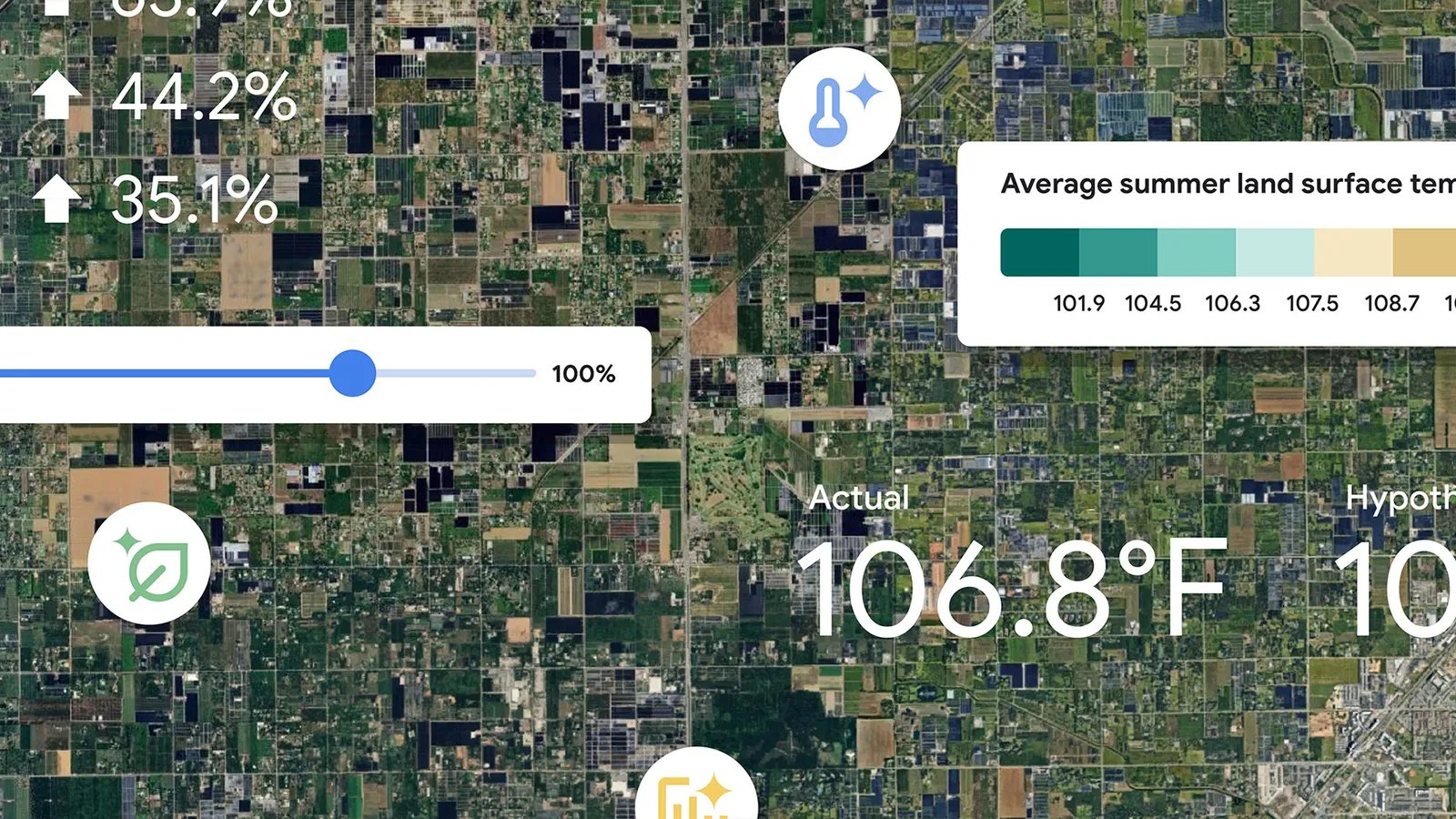Google Research has unveiled a new AI-driven Heat Resilience tool designed to help cities tackle rising temperatures, especially in urban heat islands—areas that absorb and retain more heat due to dense infrastructure. Announced today, this innovative tool uses AI applied to satellite and aerial imagery to provide city officials with data on how to cool down neighborhoods through strategic interventions like planting trees and installing highly reflective surfaces such as cool roofs.
With predictions that 2024 could surpass 2023 as the hottest year on record, the need for such tools has never been more urgent. Urban heat islands heat up at twice the global average rate, disproportionately affecting vulnerable communities, including the elderly, children, and people with chronic health conditions. According to recent data, heat-related mortality for people aged 65 and older increased by approximately 85% between 2017 and 2021.
Google’s Heat Resilience tool uses AI-powered object detection models to analyze local factors like green space and roof reflectivity, helping cities identify their hottest and most vulnerable areas. This allows local governments to prioritize cooling strategies where they are needed most, directly impacting neighborhood-level planning and policy.
Currently being piloted in 14 U.S. cities, including Miami-Dade County and Stockton, California, the tool provides quantifiable insights that enable city officials to make informed decisions. In Miami-Dade, the tool is helping develop policies that encourage developers to adopt heat mitigation measures, while Stockton has used an earlier version to identify potential projects to combat urban heat islands.
Google Research aims to expand partnerships with more cities, equipping them with the data necessary to implement effective cooling strategies, ultimately leading to safer, healthier, and more sustainable urban environments.








